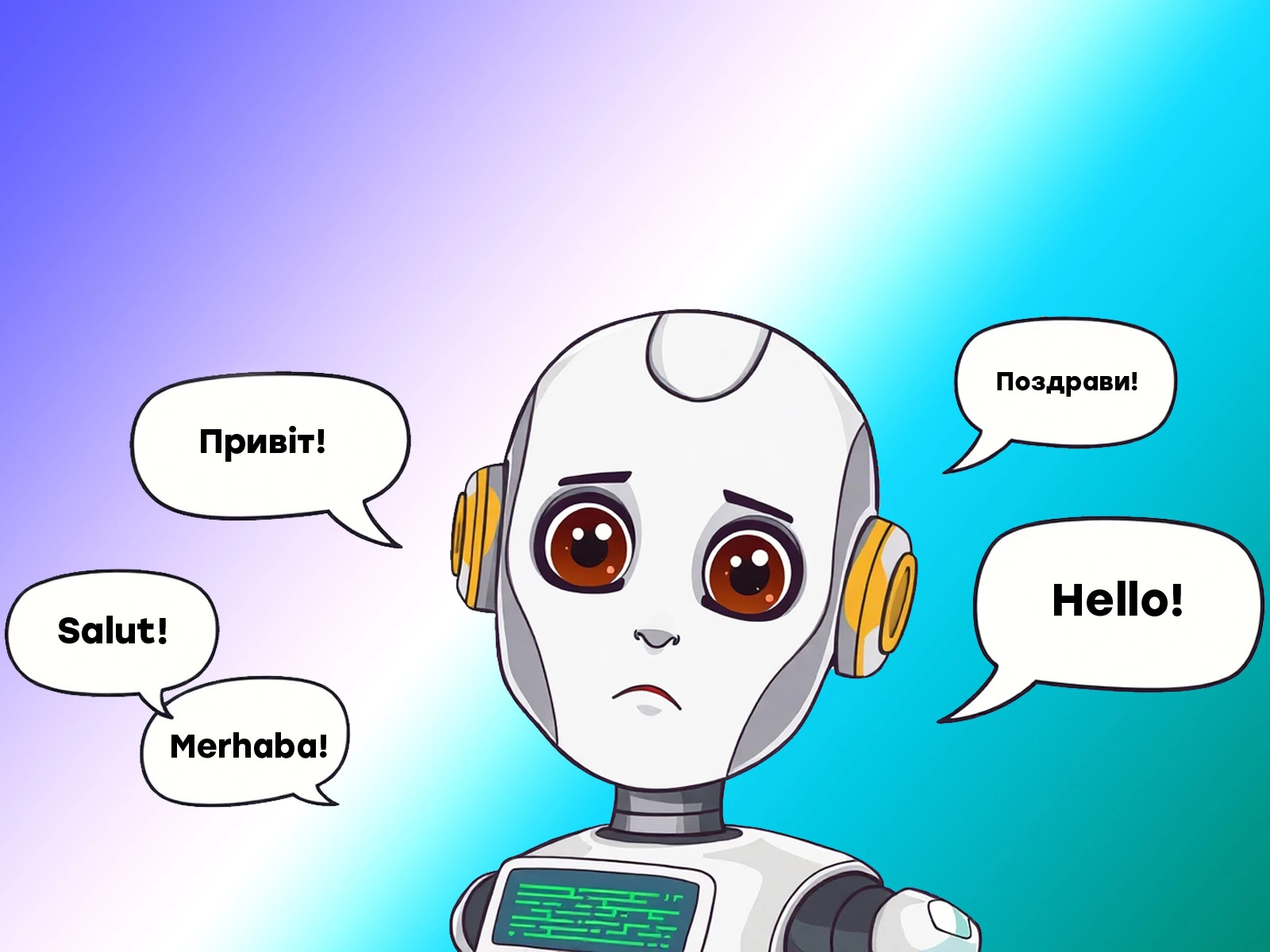
How to make Search and Discover show your perfect image
What changes in Google Ads API Developer Assistant v2.0?

How stylistic features impact user engagement in AI-generated content

5 minutes
Thousands of languages spoken worldwide, but only a small fraction have significant representation on the internet.
Most of what we see in search results, AI responses, or on digital platforms passes through the filter of a few dominant languages. This not only determines what information we receive but also whose knowledge is considered important.
Modern technologies promise barrier-free communication:
Theoretically, language should no longer be an obstacle.
However, a closer look at search results, AI answers, and digital communication shows a different picture. Although the internet is global, it is dominated by English, russian, Spanish, and a few other languages.
For users operating at the intersection of language, search, and artificial intelligence, this is not just a missed opportunity—it is a structural flaw affecting accessibility, inclusiveness, and even the formation of truth online.
A revealing example is the Ukrainian and Crimean Tatar languages. Even when browser and search settings are set to Crimean Tatar or Ukrainian, results often appear in russian or English, coming from sources outside the local context. This is not a random algorithm error but a pattern connected to how search engines interpret and prioritize languages.
A similar situation is observed worldwide: users searching in less common languages are systematically funneled into zones of dominant languages. This affects not only access to information but also the formation of beliefs, knowledge exchange, and which voices shape reality.
There are currently over 7,100 living languages worldwide, around 4,000 of which have a writing system. But in practice, only about 150 are significantly represented online, and fewer than 10 languages form over 90% of online content.
English alone accounts for more than half of all indexed web pages. Adding Russian, German, Spanish, French, Japanese, and Chinese covers most of the searchable content. The rest remain fragmented, poorly indexed, or completely invisible.
This has serious consequences. Search engines, AI, and social networks do not just provide access to facts but shape the informational universe we inhabit. Favoring a few languages leads to erasing nuances and losing local context.
In Spain, several regional languages are officially recognized — Catalan, Galician, Basque — yet the international digital space remains almost entirely monolingual. Catalan blogs, Basque cultural archives, or Galician oral histories exist but rarely enter the global information flow because search algorithms do not promote them.
A similar picture is observed in Africa, Asia, South America, and among Indigenous peoples in North America. The problem is not the lack of content but the lack of systems capable of properly recognizing, indexing, and translating it.
It was believed that AI would break down language barriers. Large language models like GPT-4, Gemini, or Claude can handle dozens of languages, translate and summarize information better than traditional search.
But in practice, AI’s language competence remains uneven. For less common languages, results are often superficial, inaccurate, or inconsistent.
For example, with the Welsh language, AI models often respond in English or Scottish Gaelic, and when they do use Welsh, they frequently make errors that distort its authenticity and expressiveness.
Google often automatically corrects Welsh queries to English, and AI Overviews deliver results from English-language sources. This reflects an embedded assumption that the dominant language is an acceptable substitute.
Such redirection is not neutral — it devalues linguistic identity and undermines information reliability.
As LLMs gradually become the primary tool for accessing knowledge in business, medicine, education, and other fields, this linguistic bias creates a real risk: we receive an incomplete picture of the world filtered through a narrow set of languages and sources.
Full localization of content into multiple languages is an unaffordable luxury for many publishers. But this is not the only path to greater visibility.
There are affordable strategies that can help content creators in smaller language segments expand their audience and increase recognition without significant financial costs:
inLanguage to clearly specify the language (e.g., be, tt, qu, eu);description for English annotations;alternateName and translationOfWork to link related versions of content.Readers and searchers have more power to influence their information space than it may seem.
To go beyond linguistic “bubbles” and get a broader range of information, one can:
"agriculture policy" site:.by"digital ID systems" site:.in"housing protests" site:.clThere is frequent talk about democratizing knowledge, creating spaces where everyone has a voice, and information systems reflect the world’s diversity.
But as long as search engines, AI, and platforms prioritize only a handful of dominant languages, we get an incomplete picture.
True inclusion is more than translation. It is about designing systems that recognize, promote, and respect content in all languages — not just those with economic or political weight.
The internet will become more accurate, nuanced, and reliable only when it reflects the full spectrum of human experience — not just the perspectives easily indexed in English, russian, or Chinese.
It is important to realize that technological equality is not just about tools but also about the responsibility of developers, companies, and users.
Only through joint efforts of the industry, society, and governments can we create a truly inclusive and multilingual internet — an environment where every language and culture finds its rightful place.
This article available in Ukrainian.
Say hello to us!
A leading global agency in Clutch's top-15, we've been mastering the digital space since 2004. With 9000+ projects delivered in 65 countries, our expertise is unparalleled.
Let's conquer challenges together!
performance_marketing_engineers/
performance_marketing_engineers/
performance_marketing_engineers/
performance_marketing_engineers/
performance_marketing_engineers/
performance_marketing_engineers/
performance_marketing_engineers/
performance_marketing_engineers/